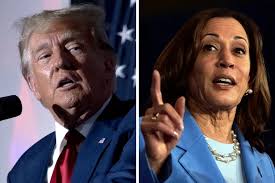
After accepting the Republican party’s nomination as vice-presidential running-mate to Donald Trump, last week, James David Vance returned to his hometown of Middletown, Ohio. In his first public appearance, the junior senator called President Joe Biden’s dropping out of the race and endorsing Kamala Harris as the Democratic party’s next presidential nominee “a threat to democracy.
“I’m kind of pissed off …” he continued, that he wouldn’t get the chance to debate Ms. Harris leading up to the November election.
At 39, he has experience as a corporal in the U.S. Marine Corps, a degree from Yale Law School and a business background in venture capital and success in publishing thanks to his bestselling memoir, Hillbilly Elegy. But debating? Well, he entered politics only two years ago, initially campaigned against Trump’s presidency, but now espouses strongly conservative policies – he opposes abortion, same-sex marriage and gun control.
I’m not so sure the junior senator should be quite so flippant about missing out on a debate between vice-presidential candidates. Instead, he may well count his lucky stars he doesn’t have to face the former district attorney for Alameda County (then San Francisco) and eventually attorney general of California.
Among other prosecutorial steps, Harris achieved a 90-per-cent success rate for all felony gun violations and enforced higher bail for criminal defendants in gun-related crime; she increased convictions on hate crime; she successfully brought transnational criminal organizations, drug and human traffickers and smugglers to trial and conviction.
“I’ve taken on predators who abused women, fraudsters who ripped off consumers and cheaters who broke the rules for their own gain,” Harris told USA Today. “I know Donald Trump’s type.”
She was a U.S. senator from 2017 to 2021 and vice-president from 2021 to the present; her tenure as so-called “immigration czar” generated the first-ever task force on immigration from Central America to the U.S. She is 59 years old, and “she has the prosecutorial chops to make mincemeat of the mendacious malefactor Trump (in any debate),” says Rep. Steve Cohen, of Tennessee.
The political debating format is as old as the hills. In fact, what is among the most historic verbal battles in North America took place exactly 166 years ago. It was just before the U.S. Civil War (1858) when two giants of American oratory – Abraham Lincoln and Stephen Douglas – debated seven times on the issue of slavery and statehood. That debate precipitated Lincoln’s comment that truth is “the electric cord that links the hearts of patriotic and liberty-loving men together.”
For the history of televised debates, I harken back to the fall of1960, to the first-ever televised debate between former vice-president Richard Nixon, 47, and Massachusetts senator John F. Kennedy, 43. This night – sometimes referred to as the first Great Debate – set the leading contenders for the most powerful job in the world in front of a television audience estimated to number 75 million people.
On this day, Sept. 26, 1960, style dominated substance. At the time, Sen. Kennedy had recently taken his presidential campaign to the Pacific west coast. Thus, he had arrived in Chicago looking tanned, healthy and focused on the job at hand. Meanwhile, Nixon had been out canvassing right up until the last moment. He looked pale, drawn and arrived at the studio for the broadcast just moments after his last public appearance.
During the debate, Richard Nixon, a seasoned debater from years of verbal jousting in Congress, kept shifting his view between looking at the camera and looking at Kennedy. Meanwhile, either on the advice of his braintrusters or by pure instinct alone, Kennedy looked straight into the camera lens during the debate, appearing to ignore Nixon altogether. His choice was clear: talk to Nixon or talk to the 75 million Americans tuning in. John F. Kennedy’s margin of victory in the presidential election a few weeks later was just 0.01 per cent.
The televised debate between Trump, 78, and Biden, 81, it may be said, brought down a president for appearing unsure of his answers, affected by a cold and looking his age. Kamala Harris has already accepted a CBS TV debate invitation for Aug. 13. NBC News, meanwhile, has reported that the Trump campaign has agreed to a Fox News-televised debate, as opposed to the CBS one. Of course, the terms of any debate between Trump and Harris or between Vance and whomever, have not been finalized. However, I for one can’t wait to witness both the presidential and vice-presidential debates.
Whether it’s age that determines the outcome or style versus substance, the results may indeed change the direction of a democracy.